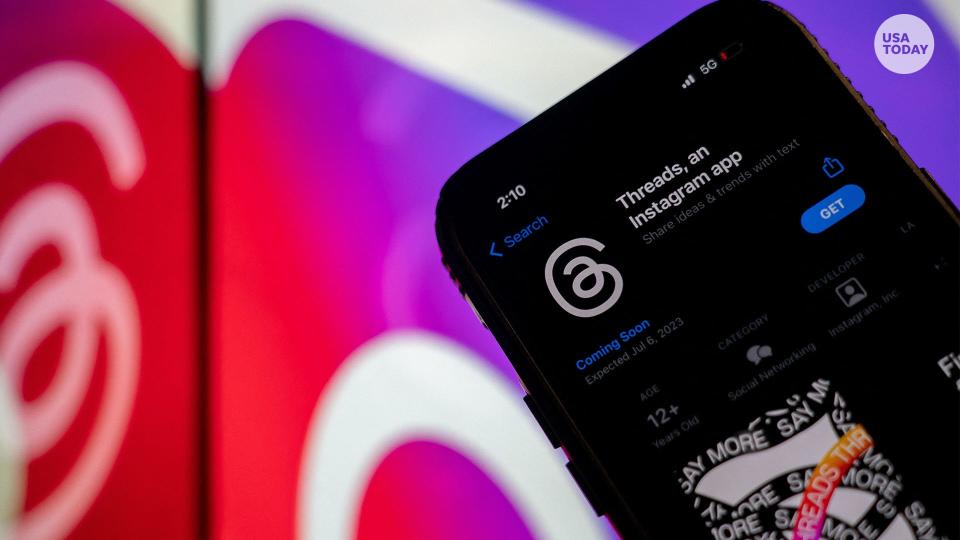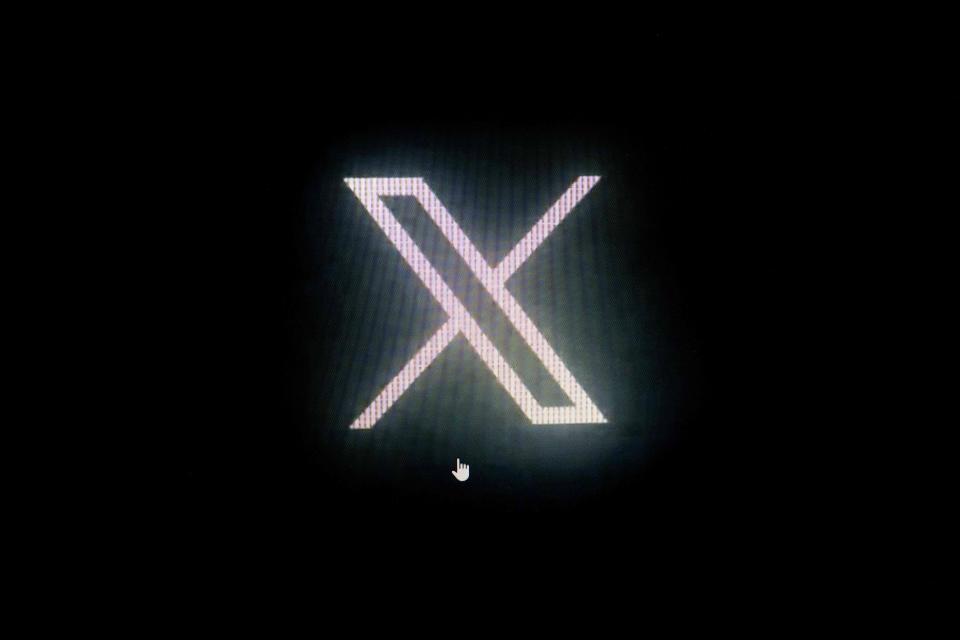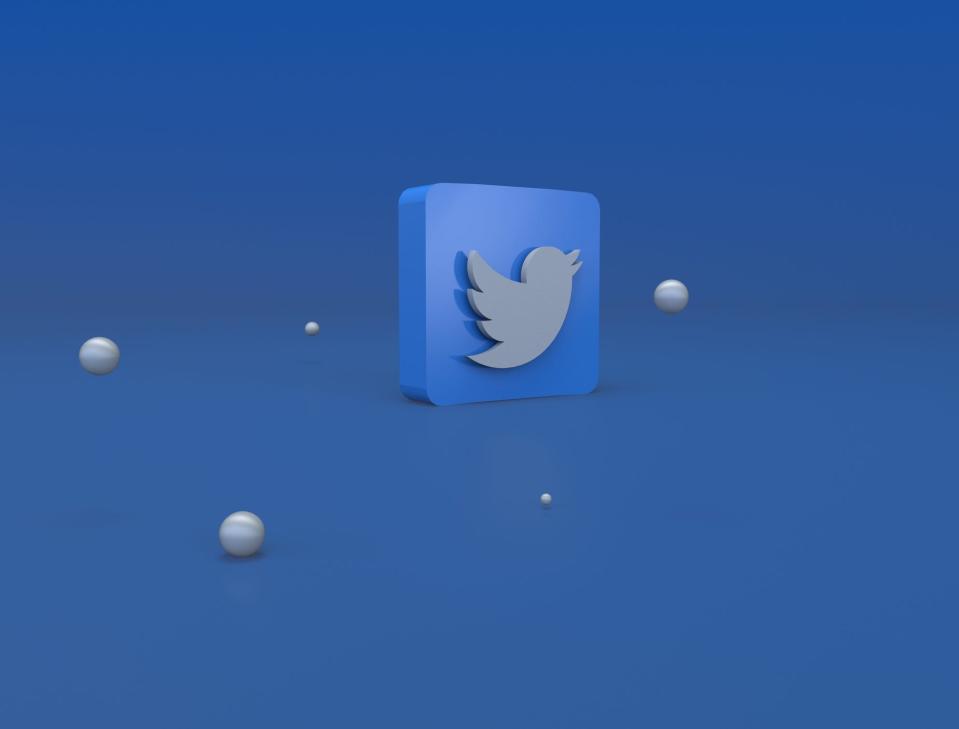Mastodon? Bluesky? Threads? What's the next Twitter if company fizzles?
- Oops!Something went wrong.Please try again later.
- Oops!Something went wrong.Please try again later.
Remember when rookie pilot Ted Striker (Robert Hays) tries to land the jet in the movie "Airplane!" (1980)?
"Flight 209 now arriving Gate 8!" announces the airport intercom. As the crowd moves to the boarding area, the voice pipes up again. "Gate 9!" The crowd rushes to the next gate. "Gate 10...!"
That's pretty much what's going on now, in the world of social media.
Twitter — just rebranded X, in the latest of many questionable corporate decisions — is that out-of-control plane. And users, seeking an alternative, are rushing from platform to platform, as each "new Twitter" is announced. It's Mastodon! No, it's Bluesky! No, it's Threads...!
Everyone wants to be in the right place when the New Twitter arrives. If it arrives.
People are looking to see where their friends go. Where their favorite celebrity "follows" go.
Earlier this month, Threads seemed to be the front-runner. Who better to challenge Elon Musk, the widely-loathed Twitter executive chairman whose prickly personality, subscription fees, and arguably hate-tolerant speech policies have driven as many as a million users from the platform since he took over last year, than Mark Zuckerberg — the nearly-as-loathed CEO of Facebook and Instagram? Meta, as the parent company is called.
Two colossal egos, battling for control of the media world: Godzilla vs. Megalon. There was talk, for a while, of a cage match. Instead, on July 5, Zuckerberg launched Threads.
At first, Threads captivated the world. In less than 5 days, 100 million users had signed up.
"All the celebrities and influencers were saying, I guess I'm Threads now," said Karen North, professor of digital social media at USC Annenberg School for Communication and Journalism.
Second thoughts

And then? Buyer's remorse. Threads lost more than half its active users between July 7 and July 14: from 49 million to 23.6 million, according to CNN.
There was frustration. Suspicion. People didn't like the 14 categories of data that “may be collected and linked to your identity." Or the way the platform was tied to Instagram. Users discovered they could not delete their Threads accounts unless they deleted Instagram too.
Bluesky, an earlier favorite, had its own problems. It requires an invite from a current user — and invites were limited. Mastodon, some said, was difficult to use.
"They all have limitations," North said. "Including Twitter."
Bottom line: If Twitter has been dethroned, no one has yet found a monarch to put in its place.

Matters of Fact | A column about our lives in the age of media
Users, like a vast cloud of birds, have been wheeling first one way and then another, as the latest, hottest Twitter alternative is announced. But the mass of social media users have — so far — failed to find a place to roost.
"The social media public is more fickle now," said Steven Miller, director of undergraduate studies for the department of journalism and media studies at Rutgers University. "And the more choices they have, the more fickle they can be."
How did we live without it?
Part of that may be the unique nature of Twitter itself.
Hard to believe it's been around since 2004. Harder still to imagine a world before Twitter — a world in which we didn't tweet out our snarky comments, stray thoughts and personal brands in 140 characters or less (since expanded, first to 280, then to 4,000 for premium members).
Twitter is the classic American success story. The thing we didn't know we needed — and now can't do without.

"The draw to Twitter is that it was different," Miller said. "It gave you 140 characters to express yourself. People could do very quick takes on what was going on."
Who didn't love Twitter? Taylor Swift, Donald Trump, your sister were on it. Whether you were dropping a new album, cheering on your hometown team, or urging the potential violent overthrow of the U.S. government ("will be wild!"), Twitter was indispensable.
But when Musk took over in October 2022 (he stepped down as CEO this year, but the app is still owned by his company, X Corp), there were widespread complaints: about his firing of 80% of the Twitter staff and the resulting service disruptions, about his willingness to reinstate the banned Trump, about his $8 monthly "Twitter Blue" verification fee. It's been one chaotic decision after another.
X marks the flop

This month, it climaxed with the biggest change of all: Twitter, Musk announced, would now be called X. "Tweets" would henceforth be known as "x's."
To deliberately destroy a world-famous brand name — one with 19 years' equity in it — is such an extraordinary move that it's led some to speculate that Musk is deliberately trying to sink a company he regrets buying in the first place.
"From the outside looking in, it’s a foolish move and goes against generally accepted notions about marketing," Miller said.
"So far, all of the changes he has made to Twitter appear to have backfired," he said.
Who wants to "x" about their daughter's graduation? For that matter, who wants to "toot" "skeet" or "thread" about it? Those are the respective terms of Mastodon, Bluesky and Threads. All lack the chirpy, friendly charm of "tweets."
But even now, even with the name "X," there are some who regard Musk's company — for all its issues — as superior to anything that is likely to take its place.
A little bird told me

People, North said, misunderstand what Twitter is. What it does.
It may have started as an app for Chatty Cathys. But it's become an important tool for grass-roots political organizers, and an information source for reporters. Some 25% of Twitter users are journalists, according to the Nieman Journalism Lab.
"It was a fun thing to see, 'I just ate a taco,' but we've all moved past that," North said. "Twitter is a network for journalists. I feel Twitter is the new AP. It's hard to imagine how to replace that at a global level."
A reporter, wanting to find out about a political uprising in Tunisia, turned automatically to Twitter. So — just as importantly — did a resident of Tunisia who wanted to get out the word about it. It was a universal information exchange. Everyone was on it. Everyone knew how to use it.
"The real value is to allow anybody anywhere, from the highest to the lowest, to the most to the least important, to say, "This is what I just saw, this is what I just heard,'" North said. "Pretty much all around the world, people know how to get on Twitter and announce something. And reporters were looking for stories there."
Broken up
Now, with Twitter seemingly fragmenting into a hundred pieces — as Ma Bell did back in the 1980s — that channel of communication will fray. Inevitably. A war victim in Ukraine won't gain much by posting on Bluesky, if the reporters she's trying to reach are on Mastodon.
That's why North is hoping against hope, that Twitter or X or whatever Musk decides to call it next will somehow right itself. It's too important.
"The thing that's unfortunate is that instead of people trying to rally and support and improve such an important and powerful information network, people want to attack it and kill it," North said. "Because of frustration with the platform. Or with the owner of the platform."
Jim Beckerman, a columnist and critic for NorthJersey.com and The Record, writes a monthly media column for the USA TODAY Network titled "Matters of Fact."
Email: beckerman@northjersey.com
This article originally appeared on NorthJersey.com: What is Twitter alternative? On Mastodon, Bluesky and Threads

